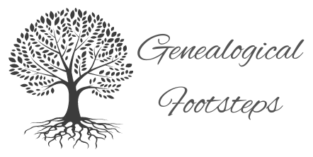Whether you are just beginning your journey into genealogy and family history or are a seasoned researcher looking for some fresh approaches, this compilation of genealogy hacks might have something to enhance your quest. Collated from the responses of a vibrant community of fellow family historians and genealogists and enriched with additional expert tips, this list might just help you unlock new avenues in your research. From leveraging the latest digital tools to revisiting traditional archival sources, these tips and tricks will help streamline your search, uncover hidden gems, and hopefully bring the stories of your ancestors to life. So without further ado, let’s dive into these hacks and see if they can transform the way you explore your family’s past! (They are in no particular order of importance.)
- eBay Alerts for Surnames or Places: Set up alerts for items related to specific surnames or locations. This can unearth rare finds like medals, deeds, and historical documents that directly connect to your family history.
- Random Searches on eBay: Occasionally search eBay for family-related items. One user found a packet of old family photos from the late 1800s, complete with names that confirmed family connections.
- Google Alerts for Names and Topics: Use Google Alerts to track mentions of specific names or topics online. Be mindful of common names or names shared with celebrities to manage the influx of information.
- Newspaper Database Searches by Address: Search historical newspapers by address instead of name. This unique approach can reveal variations in names, bypass OCR limitations, and provide richer location-based information.
- Google Translate for Foreign Records: Utilise Google Translate for accessing records in different languages and communicating with non-English speaking agencies (although it’s not always perfect).
- Google Searches for Family Associations and DNA Studies: Search for family names to find Family Association websites and postings by genealogical researchers. This often yields more accurate information than general ancestry websites.
- Evernote for Organised Research: Use Evernote to create individual templates for research subjects. Also, maintain regional and local (state and county in the US) level notes with links to statutes and family search catalogs for efficiency.
- DNA Testing Although it has almost become a cliche today, DNA testing really can be invaluable to your research efforts. It could throw up literally hundreds of leads. If you can afford it, do it.
- Linking DNA Results in Family Trees: Apply methods like the Leeds method and use spreadsheets to cluster DNA matches. This can effectively break through research barriers.
- Utilising Internet Archive: Explore archive.org for its vast collection of old documents and modern books, many of which are available for free online borrowing.
- Creative Searching Techniques: Experiment with searching nicknames, reversing names (e.g., “William Brewster” to “Brewster William”), and simple Google searches for names and dates.
- Facebook Groups and Forums: Engage with specialised Facebook groups and forums. These communities often share unique insights and resources not found elsewhere.
- Local Library Resources: Many libraries offer free access to genealogy databases and local history collections that are not available online.
- Volunteering at Local Archives: Volunteering at local historical societies or archives can provide access to unindexed records as well as networking opportunities with other researchers.
- Geographical Focused Research: Sometimes focusing on a specific location rather than a surname can unearth new connections and information.
- Using Historical Maps: Employ historical maps to understand boundary changes and to locate ancestral properties, which can provide context to your research.
- Collaborating with Relatives: Reach out to distant relatives. They might have documents, photos, or stories that can add depth to your family history.
- Interviewing Elderly Family Members: Capture stories from older family members. These oral histories can be a treasure trove of information.
- Attending Genealogy Workshops and Conferences: Participate in workshops and conferences for learning, inspiration, and networking with other genealogists.
- Leveraging Social Media for Crowd-Sourced Information: Use platforms like Twitter or Instagram with genealogy-related hashtags. Post old photos or queries and tap into the collective knowledge of the genealogy community.
- Reverse Image Searching Old Photographs: Use Google’s reverse image search or services like TinEye to find similar images online. This can sometimes help identify unknown locations or even people in old family photographs.
- Utilising Timelines for Contextualising Ancestors’ Lives: Create timelines for your ancestors. This can help place their lives in historical context, revealing how broader events (like wars or migrations) may have impacted their stories.
- Exploring Religious Archives: Many religious institutions keep detailed records. Exploring church, synagogue, or mosque archives can uncover baptism, marriage, and burial records not found elsewhere.
- Podcasts and YouTube Channels: Follow genealogy-themed podcasts and YouTube channels. These can provide tips, stories, and methodologies that might spark new ideas or solutions.
- Using Local History Books: Often overlooked, local history books can contain valuable information about the areas where your ancestors lived, including family names, stories, and even photographs.
- Participating in Genealogy Message Boards and Mailing Lists: These can be goldmines for finding relatives, swapping information, and learning from the experiences of others.
- Checking Out Old Court records: Court records, including wills, land grants, and legal disputes, can provide detailed insights into ancestors’ lives and relationships.
- Exploring Occupational Records: Investigate records related to your ancestors’ professions. Union lists, guild records, and occupational licenses can offer unique insights.
- Utilising School and University Archives: Old yearbooks, alumni records, and even school newspapers can provide unexpected details about ancestors’ early lives.
- Exploring DNA Match Trees Even Without a Response: If a DNA match doesn’t respond to messages, explore their family tree if it’s public. You might find clues to your connection.
- Using Historical Societies for Niche Information: Local historical societies often have niche information that can fill in gaps in your research.
- Visiting Old Cemeteries: Even if you don’t have specific graves to visit, old cemeteries can provide clues, especially in areas where your ancestors lived.
- Networking with Other Genealogists at Local Libraries: Many librarians are knowledgeable in genealogy and can offer advice or point you to lesser-known resources.
Bonus tip:
Use FindAGrave.com: Volunteering for Findagrave.com, such as taking headstone photos, can be a rewarding way to contribute.

My name is Anthony, the founder of Genealogical Footsteps. I have over 20 years of dedicated experience in family history and genealogy (although I am not a professional genealogist). I hold BA in history, and am considering further education (despite my age). My journey in genealogy has led me to remarkable discoveries and projects, particularly where my Cypriot genealogy is concerned. I am passionate about uncovering the stories behind names and have helped friends and family connect with their heritage, including those with Cypriot, Celtic, and Viking ancestry. Click here to read more about me.

